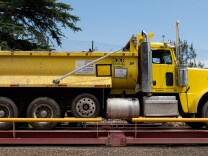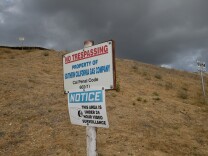
Next Up:
0:00
0:00
-
Listen Listen
Climate & Environment
Jonathan Rinderknecht has pleaded not guilty to arson, among other crimes related to the destructive and deadly January fire.
Listen
0:46
Sponsored message
More Stories
-
The California Communities Extreme Heat Scoring System — which the state is calling CalHeatScore — can tell you the level of heat-related health risk you face, on a scale of zero to four, and point you to cooling resources in your area.
-
Tech-savvy California is still debating how to regulate the electricity use of AI data centers.
-
The Antelope Valley and areas along the I-5 corridor are the biggest concerns.
-
Last year, more than 137,000 SoCal Edison customers had their power shut off to help mitigate fire risk from utility lines.
-
The sell-off would be part of the Trump administration’s efforts to cut the budget deficit, double down on fossil fuel production and expand affordable housing development.
-
Some of the hatchlings could be released into the wild as part of an international recovery program.
-
Here’s the science behind the summer solstice, including why its calendar date changes year to year.
-
Temperatures will reach the low 100s in the Inland Empire.
-
Residents are seeing trucks with Army Corps markings far from any sites where fire debris is allowed to go. Here’s what we figured out.
-
California could lose billions in highway dollars for failing to meet federal air standards.
-
Sunday is the warmest day of the week, but the heat will stick around.
-
Copenhagen is expected to receive 30% more rainfall by the end of the century. The city is responding with a massive long-term adaptation plan.
Forecasters expect the heaviest rain Friday into Saturday night
Support your source for local news!
In case you missed it
-
911 recordings obtained by LAist shed light on why and how emergency planning continues to leave people with disabilities behind.
-
LAist investigates illicit dumping at three Antelope Valley sites.
-
An LAist investigation found toxic heavy metals in samples of fire retardant collected from the Palisades, Eaton and Franklin fires. Here's what that means.
More Stories
-
The action followed months of attempts to reduce the number of livestock attacks, including diversionary feeding, use of drones and 24/7 field presence.
-
The Trump administration has finalized a plan to open the coastal plain of Alaska's Arctic National Wildlife Refuge to oil and gas drilling, renewing long-simmering debate over whether to drill in one of the nation's most sensitive wilderness areas.
-
Debate continues about zone zero, the California rules nearing the finish line that would regulate what can be planted and stored within 5 feet of millions of homes.Listen 0:44
-
The California Department of Fish and Wildlife seized what they say appears to be at least nine rhino horns and thousands of pieces of elephant ivory from an L.A. County business.
-
Regulations on gas storage facilities have been tightened since the detection of the 2015 Aliso Canyon leak. But residents remain worried about long term health effects.
-
A new study addresses the question, concluding that climate change increased the likelihood of the fires and boosted the amount of land that burned.
-
About 5,000 more plants will be installed this fall, officials say, blanketing what will become a nearly 1-acre wildlife habitat.
-
You may be able to see the Orionid meteor shower from darker pockets of the Southern California suburbs, but the desert and mountains will offer the best viewing.
-
Most survivors of January's fires face a massive gap in the money they need to rebuild, and funding to help is moving too slowly or nonexistent.Listen 3:45
-
The annual mosquito season is ending, but some problematic breeding water sources may have been refilled.




































